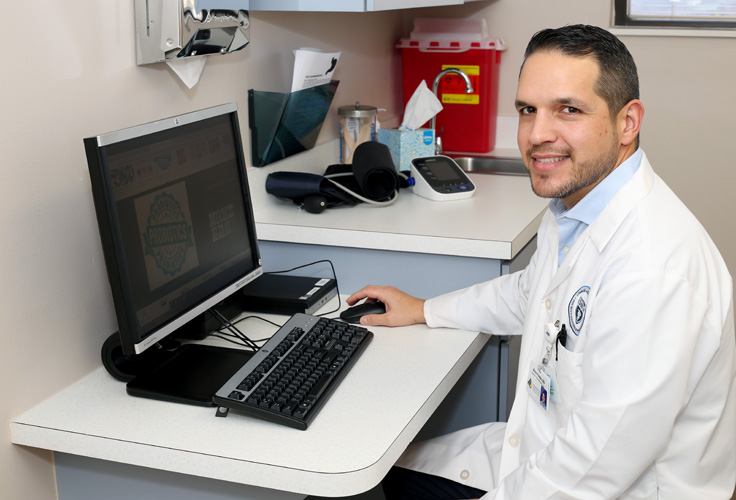
Probiotics are everywhere these days. You can find them in drugstores, health food stores, grocery stores, convenience stores and on the Web.
But what exactly are probiotics?
They are, simply stated, live bacteria – billions of them – that people swallow to improve digestive health and for other reasons. They may also have a positive impact on depression and other conditions, according to Psychiatry Advisor.
Dr. Alejandro Perez, a gastroenterologist with the Steward Medical Group and the Sebastian River Medical Center, offers some advice on the efficacy and use of probiotic supplements.
“The way that I look at it is, No. 1, there is generally a very low risk of causing any harm,” says Perez. “No. 2, probiotics can potentially help with some of the symptoms you’re having. No. 3, if they don’t work after a month or so, then you stop.”
He specifically points to diarrhea related to antibiotic use. “I would say, personally, of all the conditions that we would potentially treat right now with probiotics, that probably” is the one where probiotic use is most clearly indicated.
The use of probiotics, or live bacteria cultures, is not a new thing. They have been consumed for over 5,000 years in naturally occurring quantities in yogurts and fermented vegetable dishes such as kimchi or sauerkraut. What’s new is the amount of bacteria in today’s probiotic supplements is much higher than in those common foods.
Probiotics are measured by Colony Forming Units (CFUs), and most commercially available probiotic supplements contain around 10 billion CFUs per dose.
While 10 billion may seem like a huge number, it pales in comparison to the levels of bacteria found naturally inside the human gastrointestinal tract.
According to Harvard Medical School, “an estimated 100 trillion microorganisms representing more than 500 different species inhabit every normal, healthy human bowel.”
While noting that “the idea of tossing down a few billion bacteria a day might seem – literally and figuratively – hard to swallow,” the folks at Harvard say “a growing body of scientific evidence” suggests probiotic use may help your gastrointestinal health.
Cleveland Clinic, on the other hand, while calling probiotics the good microorganisms, also says the body “does not need” the addition of probiotics to be healthy.
Nevertheless, Americans now spend well over $2 billion a year on probiotic supplements and the market is growing fast.
According to both Global Market Insights and Zion Market Research, sales will likely soar to over $65 billion worldwide in just the next five years.
Perez says more probiotic studies need to be done because “we don’t know what strength to use, what the right dosage is and how long” people should take probiotic supplements.
At the same time, he also points out, “there are some very good websites,” including the one by the International Society for Probiotics and Prebiotics that people can check with to get information about dosage and length of use.
“If there’s any regulatory, reliable organization [for probiotics],” says Perez, “that is it.”
Still, he also urges at least a modicum of caution.
“Do I think everybody needs to be on a probiotic? Absolutely not. Am I a fan of taking a probiotic just for general health? I don’t think so. I don’t think we know what strain that we need. I don’t think we know the concentration we need and I still think we need more data to figure out what’s the outcome, long-term, of using these probiotics every day.”
He also has an important specific warning: “Any condition where your immune system is suppressed is not one that you want to be introducing live bacteria into your system. There are case reports on things like that where people can get really sick from adding probiotics. If you’re on immune suppressants or your immune system is low, that’s one of the few contra-indications where we say, ‘No, this is not a good scenario for you to start taking probiotics.’”
In other words, before adding “billions and billions” of bacteria to your gastrointestinal system on a daily basis, your best – and safest – move would be to check with your doctor or pharmacist first.
Dr. Alejandro Perez has offices in Vero Beach at 3745 11th Court, Suite 103 and in Sebastian at 8005 83rd Street (formerly Bay Street), Suite 1. The phone number is 772-567-4825.



